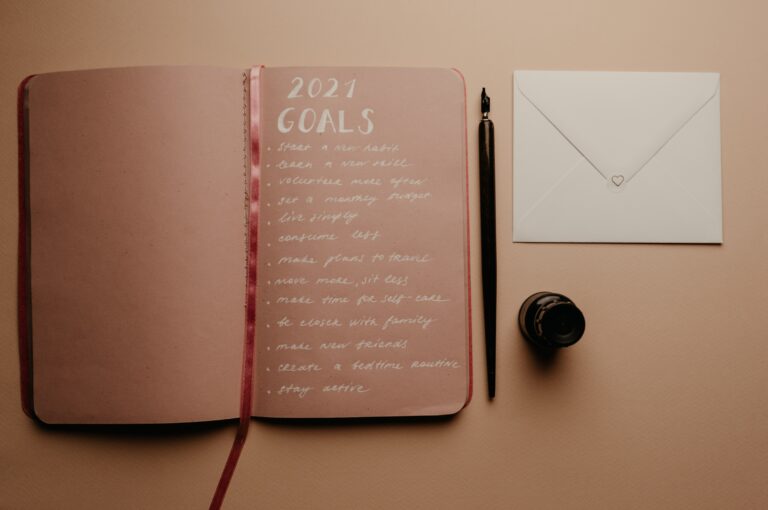How to master your productivity

This post may contain affiliate links, which means I’ll receive a little commission if you purchase through my link at no extra cost to you. Please read the full disclosure here
Amid the non-stop growth of everyday-life distractions is the increased quest for productivity. In this post, I will be showing you how to master your productivity.
We want to do more; we know we should do more if we want a chance at getting the things we want in life.
But there is always something new, more enticing than the previous, competing for our attention, could be social media or a new tv show everyone is raving about.
If today happens to be one of those days you were scouting the internet for a little boost of motivation, keep reading.
In the paragraphs that follow, I will be sharing some easy, worthwhile, and sustainable actions to help you finally take charge of your productivity.
Ones you can actually stick to beyond a couple of days.
1. Break tasks down and space them out
The first point on how to master your productivity is to break tasks down and space them.
When you think about huge tasks you need to get done, such as writing a book, learning a skill, or completing a project, the sheer size of this task tends to overwhelm us.
Because the brain doesn’t like to be overwhelmed, it tries to avoid it by any means; hence we procrastinate.
You will notice you find everything other than what you should be doing more enticing.
If you find yourself in this situation, you need to break that project down into chewable bite sizes and space them out.
Of course, this would mean you have to start earlier, but you would be putting in more quality effort than if you left it last minute.
2. Plan each day ahead
According to the wise words of Jim Rohn, “don’t start the day until you have it finished.”
He goes on to say that after mastering that, you should do the same for your week, month, and even year.
When you have no plans for a day, it has no expectations to live up to, so you can afford to spend a good amount of it on distractions, or so you think.
You can create a drastic change in your ability to get a lot done by planning your day ahead because of the expectations you create for it.
Didn’t finish everything you had on your plan that day? you still would have done a lot more than you would have if you didn’t plan.
Also, remember to make your plan flexible enough to accommodate the uncertainties life throws at us.
3. Minimize distractions
We live in a world today with a never-ending list of things that give us instant gratification, and access to them gets easier by the day.
You know what sucks up your time if you are honest with yourself, and often we beat ourselves up for choosing these distractions over the valuable work we should be doing.
You can start minimizing these distractions by canceling your subscriptions to some of these sites that drain your time or changing your environment completely when you need to get things done.
And remember, it may not be easy to let these things go initially, but be assured it gets easier with time.
It is especially important to replace these distractions with worthy habits you would like to form.
You wouldn’t want to leave one distraction for another one.
4. Sleep is important
Most people have a basic understanding that sleep is essential for the body to replenish itself, yet we often treat it as a luxury.
Sleep is important for cognition, mood, and hormonal balance, so getting the right amount of hours in should be a top priority.
Sometimes, when we have a lot to do, we take from the hours we sleep to make up for some extra time, but often we realize it is not as worthwhile because our performance is significantly less efficient.
Do all you can to get enough sleep and try getting some help with your work if it gets too much.
5. Exercise
With the popularized fitness culture in recent times, an increasing number of people have a gym membership or subscription to some sort of fitness program, which is amazing.
Fitness and staying active is a lifestyle that we should always advocate for because it does more for the body than help with weight loss or gaining the right tone of muscles.
Exercise helps our bodies keep illness at bay. It boosts our mood and energy, helps us sleep better, and improves our cognition.
So, if you think you are too busy to spare some time to exercise, consider that taking that time to do the exercise would make you much more efficient in tackling your tasks and accomplishing your goals.
6. Practice daily self-discipline
The sixth point on how to master your productivity is to practice self-discipline.
Self-discipline is not only crucial for productivity; it is an integral part of self-development.
Discipline is like a muscle.
It grows and gets stronger with use and atrophies without use.
Pushing yourself to do simple tasks you are supposed to do every day develops the habit of discipline to do even more difficult tasks.
Another quote by Jim Rohn goes, “self-discipline is important for improving your self-esteem.”
He explains that Self-esteem is simply the act of believing that you would do what is needed to get something done.
And that as many times as you default to do the things you know deep down you should have done, whether as a result of procrastination or other excuses, you weaken your trust in yourself and your abilities.
It is never too late to develop self-discipline. Just begin each day by repeatedly sticking to one task, like going to bed early, even if you have countless reasons to stay up, or making yourself a healthy breakfast every morning.
Remember, frequency is what matters most.
One task done repeatedly every day is more important than trying to change a bunch of things at once.
7. Get some motivation
Motivation fuels you to get things done, be it a new project, task, or habit, it can push us to get started.
But you might have noticed that motivation doesn’t seem to last so long, especially when that excitement of the beginning wears off and things start to get a little more challenging.
Discipline and perseverance usually get us farther and through the difficulties, but that doesn’t mean motivation can’t help at those times either.
When you are having a difficult time, and your discipline is not where you need it to be yet, motivation can be a lubricant that makes it a little easier to keep going.
These can be reasons you write down to remind yourself why you are embarking on this journey in the first place, or you could watch some of those motivational videos from motivational channels on YouTube specially edited for this purpose, with upbeat music and all.
You should try them out; They are quite good!
8. Use productivity apps
With all the apps out there optimized for productivity, there is no reason we shouldn’t be employing them in our effort to be more productive.
One of my favorites is the Forest app, which prevents you from using your phone for a set time in a fun way of planting a digital tree.
You can find other apps optimized for scheduling and managing your tasks in the app store.
You can search your app store for whatever you need help with, and I am sure something suitable will pop up.
9. Start with the more difficult task
In his book Eat that Frog, Brian Tracy uses eating a live frog as a metaphor for difficult and challenging tasks we have to do each day, the ones we are likely to procrastinate.
This reminds me of when I started making a daily plan and to-do list to be more productive with my day.
I would fill the list up with little and minute things and even the things I already did daily.
I would mostly get those little tasks done, avoiding the more difficult and time-consuming ones so I could cross them off and have a slight feeling of accomplishment.
But the problem with what I was doing was that the most important and often more difficult tasks were not done, and I had to come clean to myself that I wasn’t as productive as I was deluding myself to be.
You probably can relate to this.
We dance around the big tasks because they overwhelm us, so we procrastinate.
the more time we waste, the more overwhelmed we get.
A simple change of doing the more difficult things first made a lot of difference.
This is a very crucial point in learning how to master your productivity.
10. Accountability
Sometimes, it helps to have someone you trust, someone that cares about you, to hold you accountable when you start slipping up.
It could be someone you decide to embark on this journey with or someone you look up to who is where you aspire to be, whether loved ones or colleagues.
It can be life-changing when they call out habits you make excuses for.
Are you ready to master your productivity?
Our quest for productivity is ever-evolving based on whatever situation we find ourselves in, but following the steps that I have listed above on how to master your productivity will help you master it.
I hope you go after your dreams and achieve whatever goals you have.
Let us know in the comment what area of productivity you are excited to work on most. Also, please share with us what productivity hacks have been working for you.






